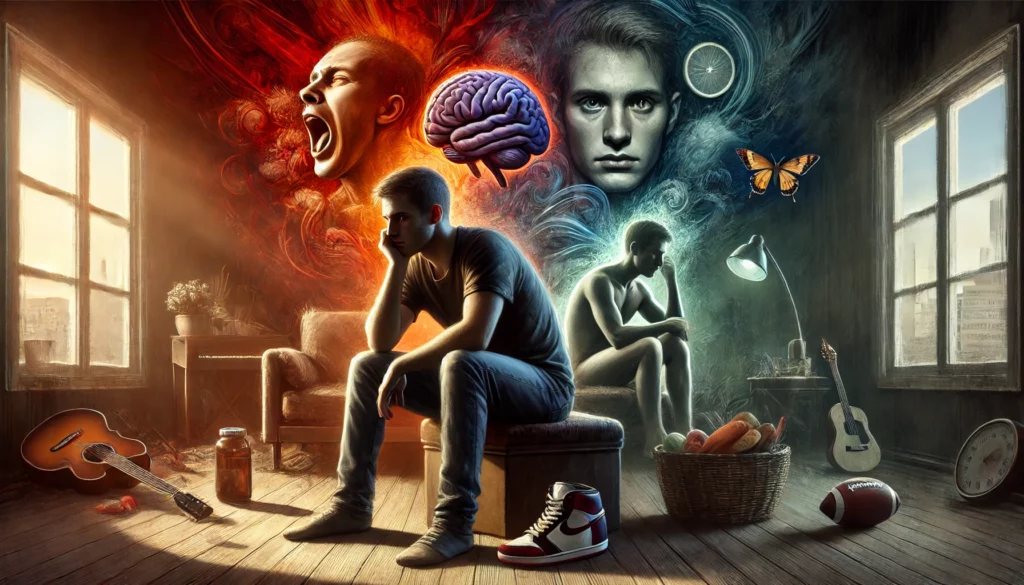
1️⃣ Introduction
Sexual compulsions are repetitive, uncontrollable impulses or behaviors in the sexual domain that individuals find distressing. They occur in both bipolar disorder and unipolar depression, significantly impacting daily life and interpersonal relationships. This report describes the characteristics, causes, and treatment options for this issue in both disorders.
2️⃣ Definition and Symptoms
🔄 Sexual Compulsions in Bipolar Disorder
In bipolar disorder, sexual impulsivity varies depending on the phase of the illness:
- During manic episodes:
- Hypersexuality: Increased sexual desire and frequent urges for intercourse or masturbation
- Risky sexual behavior: Uncontrolled partner-seeking, unprotected sex, or sexual encounters with strangers
- Sexual obsession: Persistent thoughts about sexuality that interfere with daily life
- Excessive pornography consumption: Uncontrollable and compulsive viewing of pornography
- During depressive episodes:
- Feelings of shame and guilt about sexual behavior during manic episodes
- Compulsive suppression of sexuality to punish oneself or out of fear of losing control
- Sexual obsessive thoughts, often associated with anxiety or disgust
😞 Sexual Compulsions in Unipolar Disorder (Major Depression)
In unipolar depression, sexual compulsions are often linked to anxiety and excessive self-control:
- Intrusive sexual thoughts that are perceived as distressing (e.g., fear of having inappropriate thoughts)
- Perfectionism in sexual behavior to conform to moral or ethical standards
- Compulsive rituals to avoid sexual impulses, such as excessive hygiene or prayer
- Repeated reassurance-seeking about whether one’s thoughts or fantasies are „normal“
- Avoidance of sexuality due to fear of losing control
3️⃣ Causes and Connections
🧠 Biological Factors
- Dysfunctional neurotransmitter activity: Imbalances in serotonin, dopamine, and norepinephrine
- Genetic predisposition: Increased susceptibility to compulsive impulses and hypersexual behavior
💡 Psychological Factors
- Early childhood trauma or strict upbringing, leading to an ambivalent relationship with sexuality
- Perfectionism and guilt, resulting in excessive self-control or avoidance
- Anxiety disorders and compulsions, manifesting in the sexual domain
4️⃣ Treatment Options
💊 Medication Therapy
- SSRIs (Selective Serotonin Reuptake Inhibitors): Effective for intrusive sexual thoughts
- Mood stabilizers (e.g., lithium, lamotrigine): Reduce impulsive behavior in bipolar disorder
- Antipsychotics in severe cases for impulse control
🧠 Psychotherapeutic Approaches
- Cognitive Behavioral Therapy (CBT): Identifying and restructuring compulsive thought patterns
- Exposure and Response Prevention (ERP): Teaching individuals to endure sexual obsessive thoughts without avoidance behaviors
- Mindfulness training and meditation to better regulate compulsive impulses
5️⃣ Conclusion
Sexual compulsions can occur in both bipolar and unipolar disorders but differ in their dynamics. While they are often linked to hypersexuality in manic phases of bipolar disorder, they are associated with anxiety, guilt, and perfectionism in unipolar depression. Early diagnosis and targeted therapy can help alleviate distress and regain control over one’s behavior.